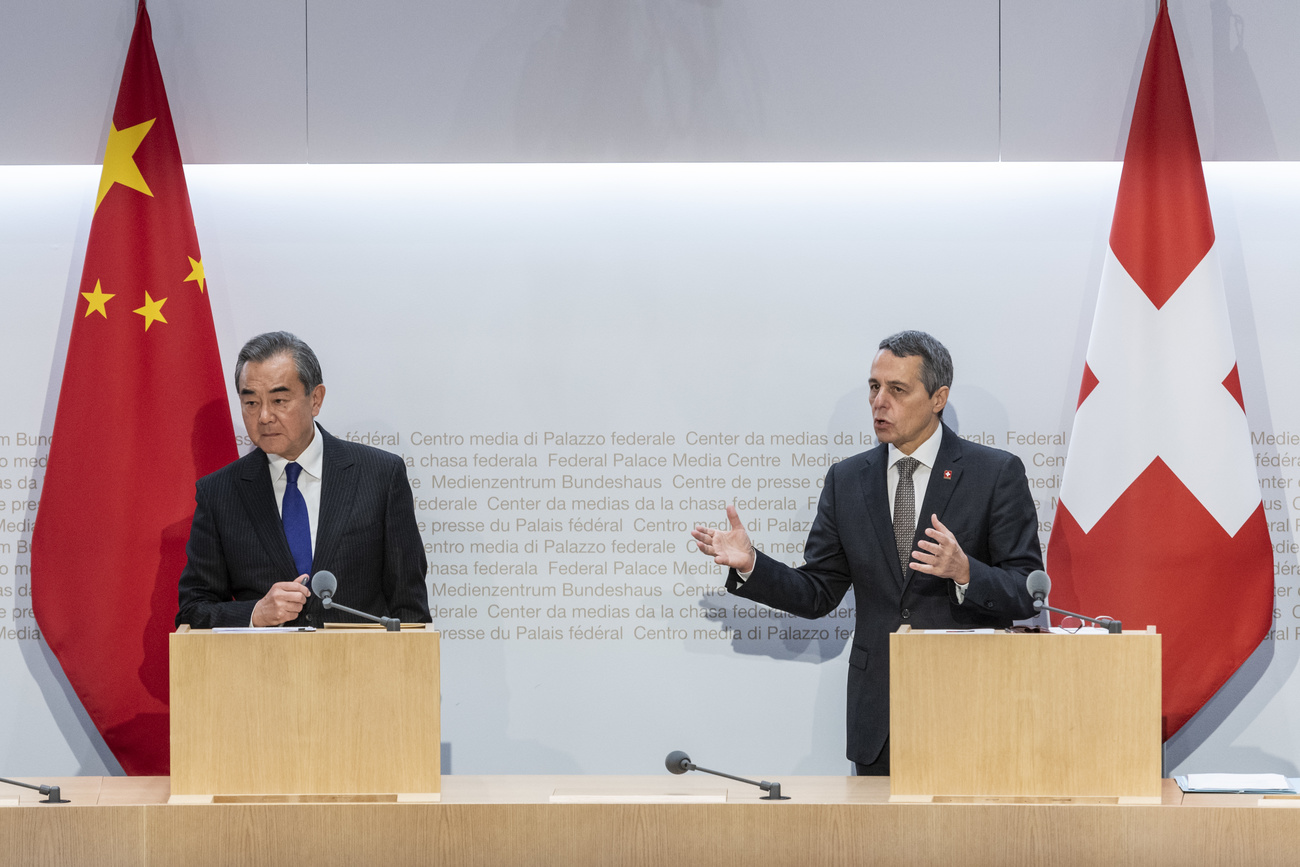
Swiss signal more criticism of China but no changes to trade policy

The Swiss government appears more concerned about the human rights situation in China according to Swiss media reports, but it has no plans to distance itself from the country. Instead, it wants to mediate more dialogue.
According to a draft of Switzerland’s new China strategy obtained by Swiss newspaper NZZamSonntagExternal link, the federal government is increasingly concerned about Chinese government tactics.
The paper says that the strategy noted that “authoritarian tendencies have increased in recent years, as has repression against those who think differently and the persecution of minorities”.
Campaigners in Switzerland have been urging the Swiss government to renegotiate a six-year-old free trade agreement with China to try to improve the human rights situation in the country. There have been widespread media reports of state-run detention camps in northwest China to suppress the Uyghur Muslim minority.
The strategy document, according to the paper, also finds that China’s willingness to discuss issues has decreased in recent years. Since 1991, Switzerland has been holding human rights dialogues with Beijing. The last dialogue was in 2018.
“Since then, further rounds of dialogue have been cancelled by China, either as a reaction to Switzerland’s participation in multilateral criticism of the situation in Xinjiang or with reference to the Covid-19 pandemic,” says the strategy paper. Last July, the Chinese government slammed Switzerland and 26 other countries for criticising a new national security law in Hong Kong.
However, the Swiss government appears to want to continue pursuing dialogue in contrast to France, the US and Canada that have taken a tougher stance.
Switzerland has come under criticism for prioritising economic interests in its relations with China, which is its third largest trading partner. The strategy paper, based on NZZ’s review, acknowledges that the theory that economic freedoms would bring about political liberalisation has not happened. “Neither trade nor the Internet have led to a corresponding change in China,” it says. “China became wealthier, but not freer.”
The foreign ministry concludes that greater distance from Beijing would have no effect on China’s domestic situation but would just damage Swiss interests.
Rather the government would like to see it play a mediator or “bridge builder” role with China.

In compliance with the JTI standards
More: SWI swissinfo.ch certified by the Journalism Trust Initiative





























You can find an overview of ongoing debates with our journalists here . Please join us!
If you want to start a conversation about a topic raised in this article or want to report factual errors, email us at english@swissinfo.ch.